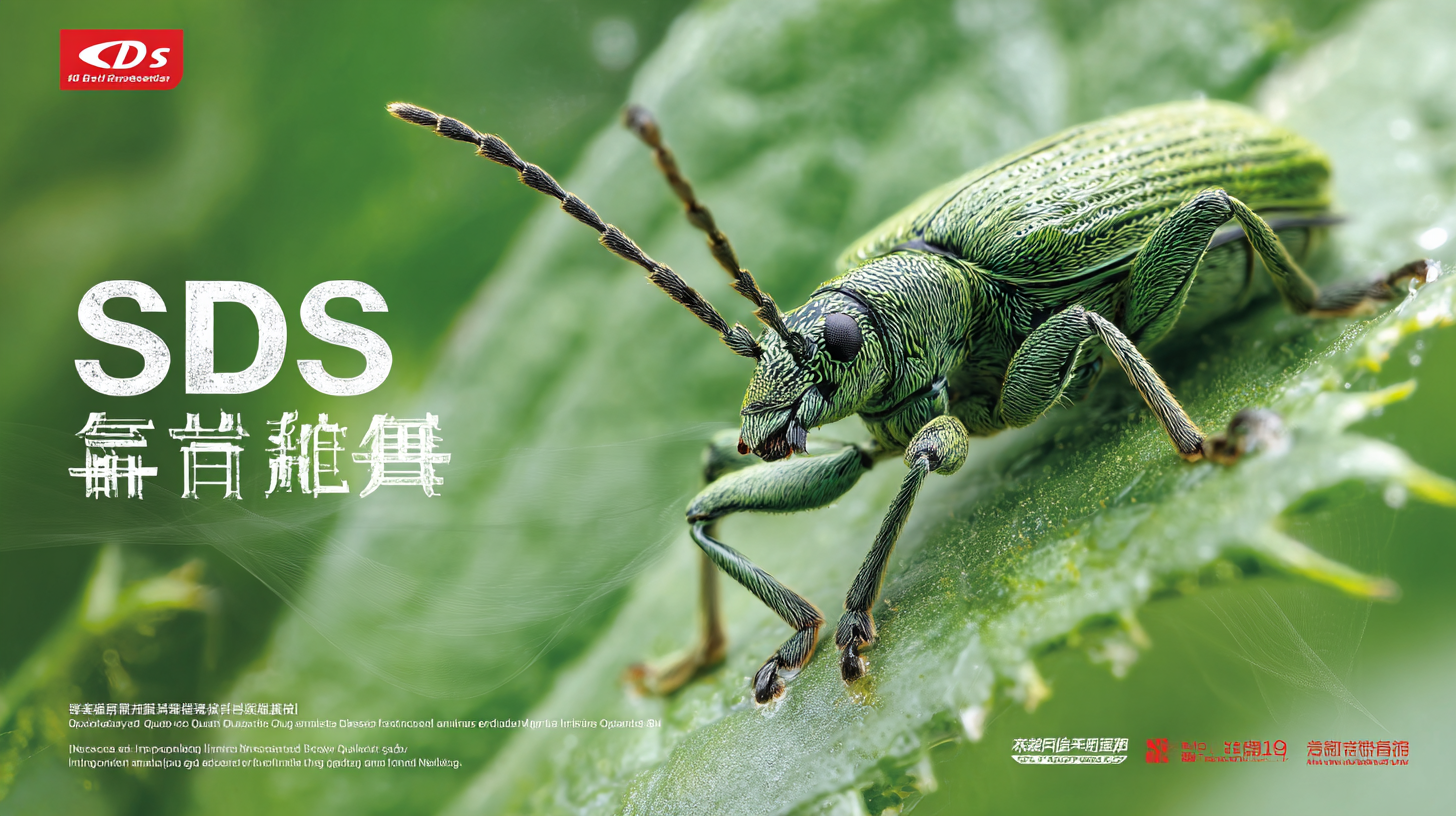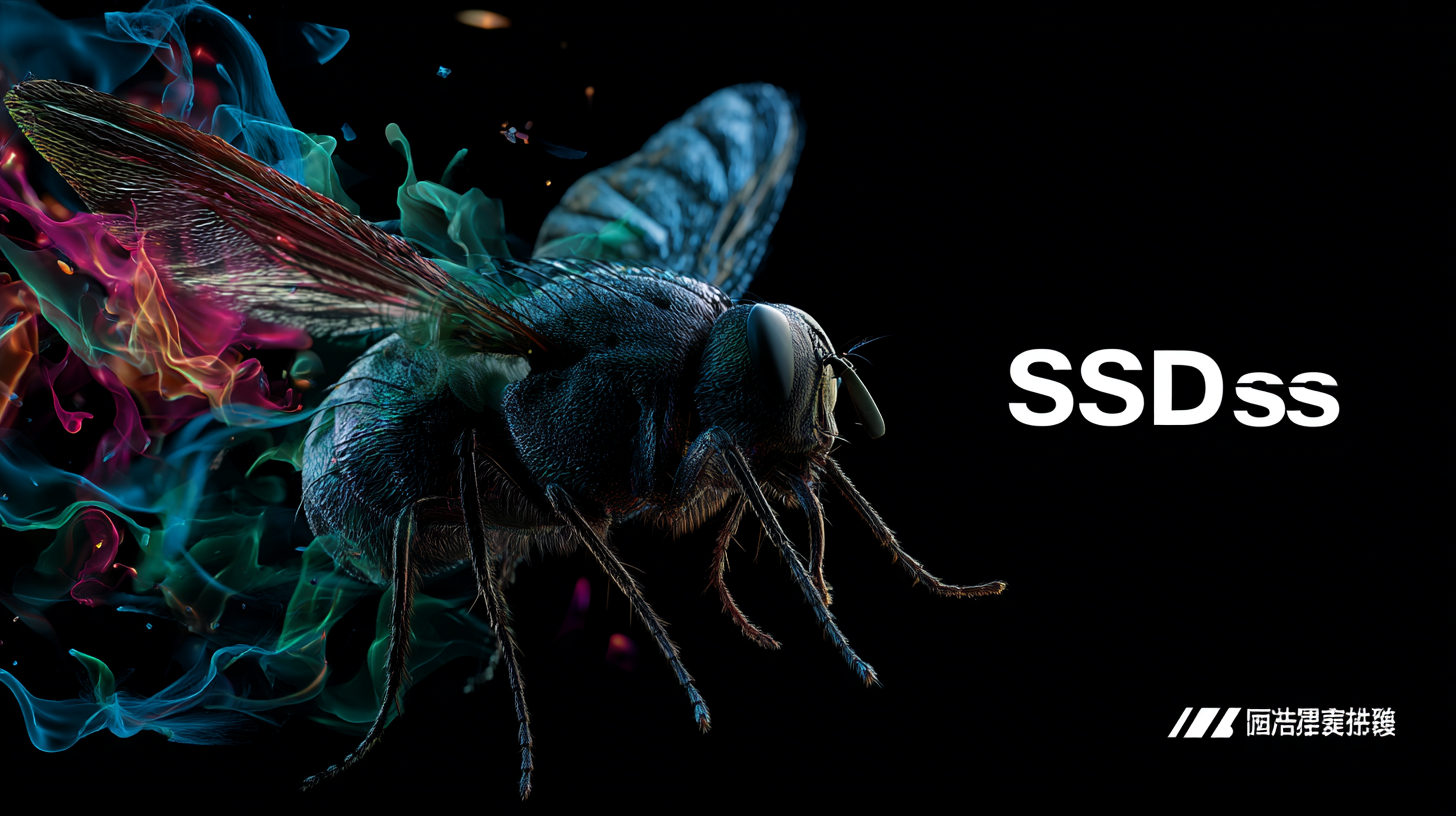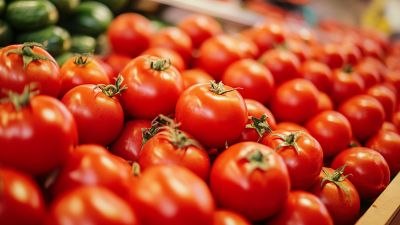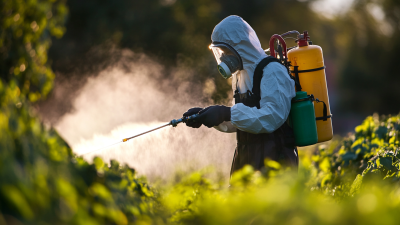 0551-68500918
0551-68500918 





The agrochemical industry is changing pretty fast, and honestly, the need for smart and effective pest control solutions has never been more urgent. A recent report from Grand View Researchpredicts that the Global Insecticide market is set to hit aboutUSD 21.57 billion by 2025. This growth is really all about creating advanced formulations that work better while being kinder to our planet. At Innovation Meiland (Hefei) Co., LTD., we’re really excited to be part of this shift. We're dedicated to researching and developing new pesticide products and formulations that not only meet but actually exceed international standards. With a focus on top-notch quality in Chinese manufacturing, we’re on a mission to lead the way in Insecticide Sds on a global scale. As we keep pushing the envelope with innovation, our goal is to tackle the challenges of pests head-on while also responding to the pressing need for sustainable agricultural practices around the world.

The title "Harnessing Superior Quality in Chinese Manufacturing for Global Leadership in Best Insecticide SDS" reflects China's growing dominance in the insecticide manufacturing sector, driven significantly by technological innovations. Recent reports highlight that between 1998 and 2019, China's agricultural green total factor productivity (AGTFP) showed substantial improvement, indicating that innovative practices and efficient market factors contribute to this growth. These advancements are vital as China pivots towards sustainable agricultural practices, balancing productivity with environmental considerations.
Emerging technologies are also reshaping the landscape of pest management in China. Innovations in non-pesticide pest control methods have been emphasized, indicating a shift towards more eco-friendly solutions that aim to minimize the use of synthetic chemicals. Additionally, the Eco-Tech Revolution, as articulated in China's 2025 Blueprint for Sustainable Innovation, integrates AI and IoT into agricultural practices, promoting smarter and greener farming solutions. The government's commitment to agricultural tech innovation, as outlined in its 10-year master plan, underscores the importance of self-sufficiency and the continuous pursuit of cutting-edge technologies to maintain a competitive edge in the global market.

You know, in the fast-paced world of manufacturing, keeping top-notch quality is super important—especially when it comes to producing insecticides. Have you seen how Chinese manufacturing has really stepped up its game in quality control? Seriously, if they keep rolling out effective measures, they could totally lead the global market in this field. So, let's go over a quick checklist of some quality control measures that could help ensure success.
First up, it’s really important to set strict standards for sourcing your raw materials. You want to partner with suppliers who have solid quality certifications—they’re the ones who’ll help you dodge discrepancies in your final product. Plus, don’t forget to do regular audits of their facilities; it’s a great way to make sure they’re staying on track. Oh, and investing in advanced tech for testing and analysis? That’s definitely a smart move to keep the product integrity intact through the whole production process.
Next, you’ve got to train your employees really well on quality control protocols. Having a knowledgeable workforce is key to spotting defects early on in the production line. Creating a culture where everyone feels responsible for the quality of their work can make a world of difference—fewer errors means smoother sailing! And regular workshops on best practices in quality control? That'll empower your team and keep them in the loop with the latest standards in the industry.
Finally, don’t overlook the importance of a feedback loop with customers. Addressing and learning from any issues they face after the sale is crucial. It not only helps improve the product but also boosts customer satisfaction and loyalty. By prioritizing these quality control measures, Chinese manufacturers could really establish themselves as leaders in the global Insecticide Market. Pretty exciting, right?
| Quality Control Measure | Description | Frequency | Responsible Party | Target Outcome |
|---|---|---|---|---|
| Raw Material Inspection | Check for chemical purity and compliance with specifications | Before production | Quality Control Team | Ensured high-quality raw materials |
| Process Monitoring | Monitor production parameters in real time | Continuous | Production Supervisor | Consistent product quality |
| Final Product Testing | Test finished products for efficacy and safety | After production | Quality Assurance Team | High safety and efficacy standards |
| Compliance Audits | Regular audits for compliance with industry standards | Quarterly | Compliance Officer | Regulatory compliance and improvement |
| Employee Training | Train employees on quality standards and practices | Biannual | HR and Training Department | Improved employee competency |
You know, insecticides have really become a hot topic in farming these days. Research and development—or R&D, as the cool kids say—are super important when it comes to making these products work better. According to a report from ResearchAndMarkets, the insecticide market is on track to hit a whopping $17.3 billion by 2025. And guess what? There's a big focus on new, innovative formulations that are also kinder to the environment. With all this competition out there, Chinese manufacturers are really stepping up their game in R&D to create top-notch insecticides that not only get the job done but also meet global safety standards.
The R&D efforts happening in China have brought some pretty exciting advancements in both chemical and biological insecticides. Take neonicotinoids, for example—they’ve really changed the way we handle pests by specifically targeting them without causing too much trouble for the good bugs. A study published in the Journal of Agricultural Sciences even showed that insecticides developed with strong R&D can be 30% more effective than the old-school products. It’s pretty cool because this push for research not only improves how these products perform but also helps meet increasing pressure from regulations and consumer demand for sustainable farming practices. Makes you feel good about where things are heading, right?
You know, sustainability has really taken center stage in how insecticides are made in China these days. It’s pretty crazy to see such a big shift toward going green in this industry! With global demand pushing for more eco-friendly options, manufacturers over there are stepping up their game to cut down on the environmental fallout from their products. They’re not just switching to greener materials, but also getting really crafty with their production processes to keep waste and emissions as low as possible. By zeroing in on sustainable practices, these companies are not only meeting international standards but are also catching the eyes of consumers who care about the planet.
But it’s not just about being eco-conscious—there's this exciting buzz around biopesticides and integrated pest management systems too! Chinese producers are seriously investing in R&D to whip up alternatives to traditional chemical insecticides that are way less harmful to both people and other critters. This whole shift towards sustainable methods not only boosts product quality but also gives a nice polish to China’s manufacturing image on a global scale. It’s fascinating to see how by embracing these sustainability trends, China is setting the stage for a new chapter in insecticide production that aims to balance effectiveness with caring for the environment. And in the end, this push could give them a real edge on the world market!
You know, getting the distribution and management of insecticides just right is super important if a company wants to take the lead in the global agri-game. When companies follow the best practices out there, they can really boost their market position and keep operations sustainable, which is a win-win. One key move is to streamline the supply chain by forming strategic partnerships with local distributors. These folks totally know the ins and outs of their regional markets. By tapping into their insights, companies can tweak their products to really meet the specific needs of farmers, making sure they get the right solutions right when they need them.

Another big deal is setting up solid training programs for the distribution teams. This way, they get all the info they need about the products and how to use them safely, which helps build trust with the end-users. Plus, let’s not forget technology! It can really step up management practices. Using data analytics? That’s golden! It gives companies a sneak peek into market trends and what consumers really want, leading to smarter decisions. Companies that embrace these best practices not only step up their operational efficiency but also show they’re committed to quality and safety in pesticide distribution. Ultimately, this helps them solidify their leadership roles in the global market.
You know, artificial intelligence (AI) and automation are really shaking things up in how insecticides are made. It's pretty cool because this tech doesn't just boost efficiency—it actually improves the quality of the products too. This means manufacturers are better equipped to keep up with the rising global demand for pest control solutions that really work. So, we’ve got these smart factories with AI-powered machines that can keep tabs on production processes in real time, cutting down on waste and fine-tuning the formulations like never before. As a result, manufacturers can churn out insecticides that are not only super effective but also better for the environment, which is a big win considering our sustainability goals worldwide.
On top of that, AI makes it easier to dive into advanced research and development for new insecticide formulations. By crunching a ton of data, those smart algorithms can spot new compounds and even predict how well they’ll tackle specific pests. Then, with automation taking care of all the boring, repetitive tasks, researchers can really get creative and come up with cool solutions to the new challenges in agriculture. China is really tapping into these innovations, which helps solidify its role as a major player in the global insecticide market. It’s exciting to think about how these advances will keep pushing agricultural productivity and sustainability into the future.
: The main sustainability trend is the shift toward environmentally responsible practices, including the use of eco-friendly raw materials and advanced production techniques to minimize waste and emissions.
Chinese manufacturers are innovating by adopting eco-friendly raw materials and implementing advanced production techniques that reduce environmental impact and meet international standards.
Chinese producers are investing in biopesticides and integrated pest management systems as effective alternatives to traditional chemical insecticides that are less harmful to human health and non-target organisms.
Embracing sustainability is important because it enhances product quality, improves the reputation of Chinese manufacturing in the global market, and meets the demands of environmentally conscious consumers.
Best practices include establishing strategic partnerships with local distributors, implementing robust training programs for personnel, and leveraging technology and data analytics for better market insights.
Companies can enhance trust by providing robust training programs for distribution personnel, ensuring they understand product applications and safety measures.
Technology, particularly data analytics, plays a crucial role by providing insights into market trends and consumer needs, aiding informed decision-making.
Streamlining the supply chain through strategic local partnerships allows companies to tailor their products to regional needs, ensuring timely solutions for farmers.
Sustainable insecticide production can lead to greater competitiveness by balancing effectiveness with environmental stewardship, aligning with global market trends.
Meeting international standards is significant as it allows Chinese producers to appeal to global markets and environmentally conscious consumers, enhancing their market credibility.







